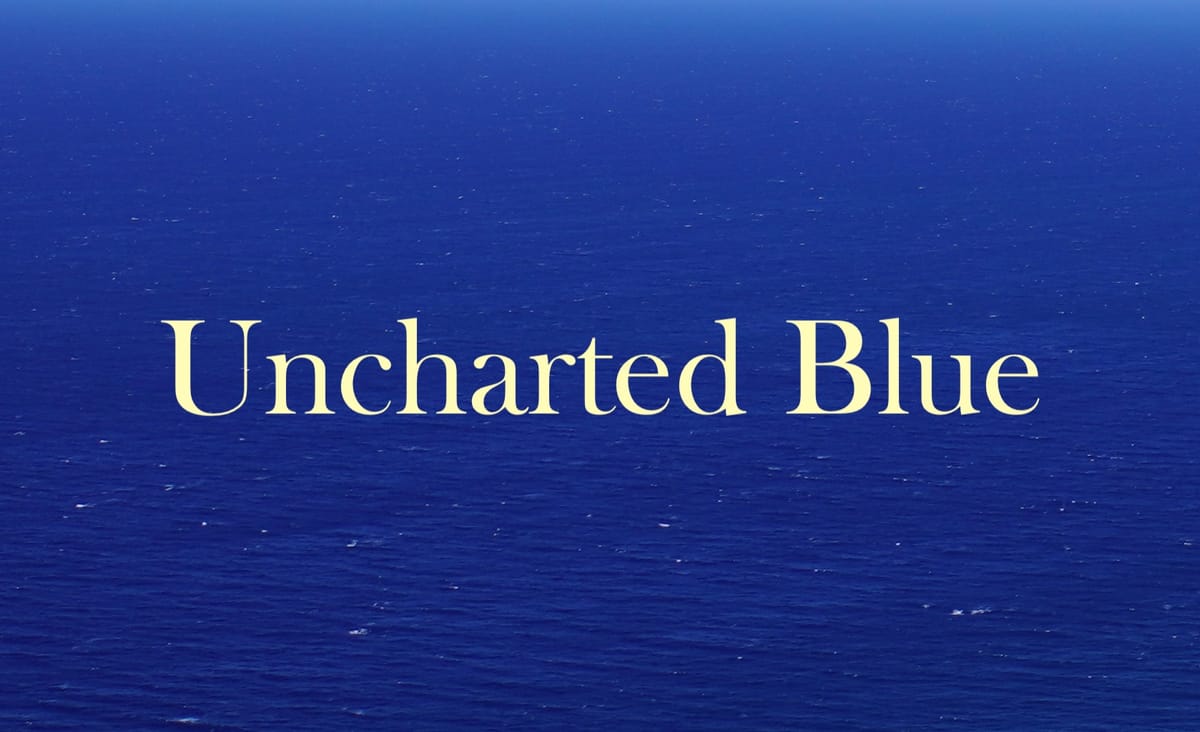I regret to report that The Freaking New York Times is at again, because of course it is, but this one's a bit different because it comes from the very top: New York Times publisher A.G. Sulzberger, and because Sulzberger published it in his paper's closest competitor, The Washington Post, "because I believe the risk is shared by our entire profession, as well as all who depend on it."
It is framed as a full-throated warning about dangers to the integrity of the free press posed by anti-democratic forces nationwide and explicitly by Donald Trump, and Sulzberger is on point when identifying the dangers and the global interconnectivity of the attacks. It's about authoritarianism; it's about eliminating the ability of each nation's press to push back on intentional movement-pushed propaganda, an all-but-required staple of authoritarian movements.
While we can marvel that both the Post and the Times continue to breeze past the Trump camp's promised mass deportation of as many as 20 million people, a number that would include untold numbers of American citizens whose birthright citizenship is to be summarily revoked—and the undeniable truth that such an effort would certainly require massive internment camps and mass deaths both, to be achieved—it seems that authoritarian attacks on newspapers themselves is at least enough to rouse press attention.
As they seek a return to the White House, former president Donald Trump and his allies have declared their intention to increase their attacks on a press he has long derided as “the enemy of the people.” Trump pledged last year: “The LameStream Media will be thoroughly scrutinized for their knowingly dishonest and corrupt coverage of people, things, and events.” A senior Trump aide, Kash Patel, made the threat even more explicit: “We’re going to come after you, whether it’s criminally or civilly.” There is already evidence that Trump and his team mean what they say. By the end of his first term, Trump’s anti-press rhetoric — which contributed to a surge in anti-press sentiment in this country and around the world — had quietly shifted into anti-press action.
Action which closely mirrors those of far-right Hungarian strongman Viktor Orban, as it turns out—the figure who has become a much-glorified father figure to American white nationalists, militia kooks, and Trump-backing suit-and-tie conservatives of the sort that attend CPAC. (But I repeat myself.)
Again, the dangers are spelled out clearly, and there seems to be no whitewashing of the extreme danger authoritarianism now presents:
To ensure we are prepared for whatever is to come, my colleagues and I have spent months studying how press freedom has been attacked in Hungary — as well as in other democracies such as India and Brazil.
Until you get to the precise paragraphs that begin describing how the press should respond to this existential danger, at which point Sulzberger again reveals the core of his own failures and that of his industry. His recipe for fighting back is to stand back and watch it happen, because he does not consider it the role of journalists to weigh in on whether journalism should live or die.
As someone who strongly believes in the foundational importance of journalistic independence, I have no interest in wading into politics. I disagree with those who have suggested that the risk Trump poses to the free press is so high that news organizations such as mine should cast aside neutrality and directly oppose his reelection. It is beyond shortsighted to give up journalistic independence out of fear that it might later be taken away. At The Times, we are committed to following the facts and presenting a full, fair and accurate picture of November’s election and the candidates and issues shaping it. Our democratic model asks different institutions to play different roles; this is ours.
And there we are. That is how Republicanism metastasized into an authoritarian and then fascist movement to begin with. That is how The New York Times turned the usual watchdog role of the press into a convenient supposed sin that must be guarded against. That one word. Politics.
To jog everyone's memory, Donald Trump attempted to overthrow the United States government rather than admit he had lost a nationwide election. He and his allies mounted a full-throated propaganda campaign that falsely questioned the legitimacy of the election—spreading provable hoaxes—as their supposed justification for nullifying the election. A simultaneous plan sought to smuggle forged "electoral slates" into Congress, at which point his vice president was to present them and declare that the original, certified election results were now "in doubt" and should be overruled by Congress. To pressure Congress into taking such action, he assembled a militia-infused mob of supporters and ordered them to march on the Capitol building at the precise day and hour that this was to take place. The mob attacked police officers, pushed through barricades, and smashed windows to gain entry to the building, at which point they began searching for U.S. lawmakers (and the vice president who refused Trump's demands, on who Trump directed the ire of the invading crowd with a tweet clearly intended to inflame them) and ransacking congressional offices.
To the publisher of the New York Times, taking a stance on a violent attempted coup instigated by one of the two presidential candidates—one who is an adjudicated rapist and a felon both, even aside from the seditious act—would amount to "wading into politics," declaring that to "directly oppose" the instigator and beneficiary of the coup attempt would be "casting aside neutrality."
That is the argument here. That it is beyond the boundaries of "news organizations" to pass judgment on the violent attempted coup instigated in very large part by propaganda campaigns meant to undermine the press and democracy both, because that would be politics.
Not outrageous acts of corruption. Not intentional criminality on a shocking and nation-shaking scale. No, declaring that Trump is unfit for office after an attempted coup that produced multiple deaths would be casting aside neutrality and wading into politics.
And that is how we got here. Because a steady stream of outrageous actions that would have unequivocally been labeled corrupt and criminal must now be treated with "neutrality" lest the press be seen as playing favorites.
What a remarkable stance that is. What a remarkable claim to make, this claim that not even an hoax-premised autogolpe is now far enough outside the realm of valid "political" acts to require The Press to creep outside the box of Both Sides and declare that no, this is criminal. This is an attack on democracy. This is an act of corruption so egregious and ongoing that the press should oppose it "directly" rather than preening about their goddamned ever-fictitious neutrality.
Because the press is not neutral, on Trump. The New York Times and the Washington Post are not the slightest bit neutral, when it comes to reporting on Trump. We saw this play out vividly in the tabloidesque coverage of the current president's mental health, when he was Trump's opponent: A poor debate performance led to New York Times frontpages dominated by unattributed speculations as to his possible symptoms and prognosis. Verbal slip-ups were analyzed with panicked tones. It was reported, in all sincerity, that the sitting president was often tired in the late afternoons—apparently the first time a president has ever suffered from this, if the coverage is to be believed. A Parkinson's-specializing doctor visited the White House several times as the administration sought to polish up new Parkinson's-related proposals, and was declared without evidence to possibly be secretly going there to give the president secret medical care.
Except in the meantime, Donald Trump has for months been spewing verbal logorrhea that can be called nothing but delusional. He claimed children were coming back from school with school-approved sex-change operations. He repeatedly refers to Joe Biden as his opponent, forgetting that Biden stepped aside. And rather than offering up seven consecutive frontpage stories questioning the 78-year-old coup-attempting seditionist's mental fitness for office, The New York Times and other outlets continue to hide his dysfunction by cutting out his delusional claims and replacing them with what, in the paper's editorial estimation, he supposedly meant to say.
Trump's actual, insane answer vs. how NYT cleaned it up for him: pic.twitter.com/tWEzhRG4Cq
— Parker Molloy (@ParkerMolloy) September 5, 2024
That is not neutral. Sulzberger is simply lying on that, and the evidence is in his paper every day. Trump, the seditionist, has his words polished by the press even when committing the most egregious of gaffes. Trump, the seditionist, is not thought to be unfit for office no matter how many times he invents new fictions and swears them to be real.
Is that neutral? Or is that the sycophantic gutting of press neutrality, instead presenting to readers altered, false interpretations of events that absolve "journalists" from determining what is truth and what is fiction, what is normal and what is corrupt, what is realistic and what is transparent hoax, by wrapping it all up into a ball, calling it "politics," and disclaiming all further responsibility?
If a newly autocratic party can mount an actual attempt to topple the nation's elected government and have it written off by the press as a political act that the press should not weigh in on, we are in far more trouble than Sulzberger himself appears to believe. He has written an editorial that plays to the autocratic tricks he himself warns about by asserting that while others might have responsibility for opposing it, his own offices do not, and instead turns to a description of how the Times intends to prepare for a future in which they have steadfastly and correctly done nothing to prevent all of these warned-of nightmares have come true.
Historian Kevin Kruse was quick to weigh in on Sulzberger's bizarre declaration.
“I have no interest in wading into politics” is an incredible line for someone who has just spent thousands of words describing how politics is already wading into the media, intent on doing real harm to the institution and the nation too. Deciding that you’re going to sit politics out is a political choice, plain and simple.
and
While I disagree with the insistence that a “fair and balanced” approach is still warranted in this exceptional and exceptionally dangerous election, at this point I’d actually welcome an even-handed approach from Sulzberger because under his leadership the coverage in the New York Times has not been evenly balanced at all.
I have certainty that Sulzberger will continue to feign ignorance of his own choices. It's not even a question. His assertion that "neutrality" prevents the press from fully warning of the extreme dangers of a coup architect's desired return to power is not one he or the rest of the American media will second-guess because to come out, full-throated, against acts of sedition would result in fury from the political party that has spent four years altering state laws to allow the results of next November's election to be more easily nullified. His paper will not get quotes. His paper will not get interviews. His paper will receive scorn and condemnation from the wealthy anti-democratic fringe that continues to fund and promote those who argue against democracy and craft the bizarre hoaxes used to falsely discredit it.
It is an ode to press cowardice, this frantic and long diagnosis of a potential collapse into authoritarian press suppression that asks everyone but himself and his own peers to rise to this uniquely dangerous moment. And that is how we got here, because the press decided that it would meet the radicalization of mainstream conservatism into open white nationalism, attacks on democracy, attacks on the very legitimacy of any ideology that is not their own, attacks on the press, and an orchestrated coup attempt that enlisted hundreds of party officials by declaring that all of it was politics and therefore uniquely off-limits to journalists that conveniently did not want to ask those questions to begin with.



















Comments
We want Uncharted Blue to be a welcoming and progressive space.
Before commenting, make sure you've read our Community Guidelines.